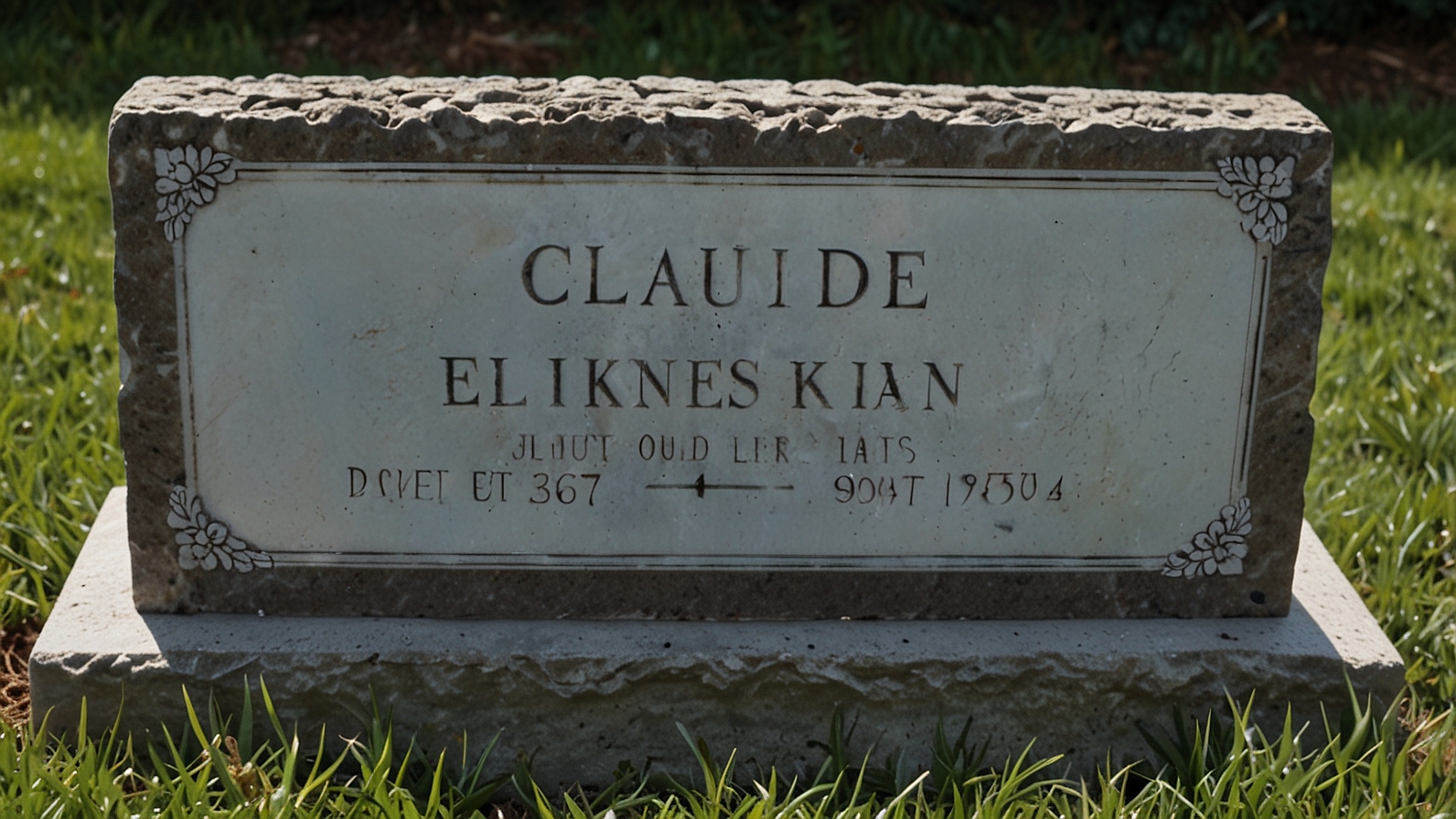Imagine a world where the discipline of a Marine, the grit of a frontline rail worker, and the vision of a corporate strategist all combine in one leader. It sounds like the recipe for a modern industry titan, doesn’t it? Well, for Norfolk Southern, this isn’t a hypothetical scenario. This is the real-life career of Claude Edward Elkins Jr., an executive whose unique path has fundamentally shaped his approach to leadership and commerce in the complex world of rail transport. His story isn’t just a climb up the corporate ladder; it’s a masterclass in how diverse experiences build a formidable and respected professional.
So, what does it take to steer a giant like Norfolk Southern? Let’s dive into the journey of Claude Edward Elkins Jr. and uncover the blueprint of his success.
Before we look at his current role, it’s crucial to understand the foundation. Claude Edward Elkins Jr. isn’t an executive who started in a corner office. His profile is built on a triad of powerful experiences: military service, hands-on railroad operations, and commercial strategy. This combination is relatively rare and gives him a distinct, well-rounded perspective. He knows what it’s like to be on the ground, literally between the rails, and he also knows how to navigate the high-stakes world of corporate negotiations. This background fosters a deep sense of credibility and trust, both with the workforce on the front lines and the partners in the boardroom.
Long before he was overseeing billions in revenue, Claude Edward Elkins Jr. was serving his country. His time in the United States Marine Corps was more than just a line on a resume; it was a formative period that instilled core principles that would define his entire career.
- Leadership Under Pressure: The Marines are renowned for developing leaders who can make critical decisions in high-pressure environments. This translates directly to the fast-paced and often unpredictable world of railroad logistics, where safety and efficiency are paramount.
- Unwavering Accountability: The military ethos of responsibility and ownership means that Elkins understands the weight of command. He knows that his decisions have real-world consequences for safety, operations, and the company’s bottom line.
- A Focus on Teamwork: No Marine operates alone, and no railroad runs by a single person. This early immersion in a team-centric culture prepared him to lead the vast, interconnected teams that keep Norfolk Southern moving.
In short, the Marines didn’t just teach him how to lead; they taught him why leadership matters. This became the bedrock upon which he built the rest of his career.
After his military service, Elkins did something that sets many great executives apart: he started at the foundation. Instead of heading straight to a corporate training program, he got his hands dirty with frontline railroad work. This experience is arguably what makes his leadership style so authentic and effective.
He learned the business from the ground up, quite literally. This involved understanding:
- The Physical Reality of Rail: The sounds, the mechanics, the immense power and precision required to move freight safely.
- The Challenges of the Frontline Workforce: He gained firsthand insight into the daily hurdles, safety concerns, and logistical puzzles that conductors, engineers, and yard workers face every single day.
- The Importance of Operational Excellence: Seeing the direct impact of efficient (or inefficient) operations on the company’s core service delivery.
This period was his real-world MBA in railroad operations. It gave him a level of credibility that is impossible to earn from reports and presentations alone. When he speaks about operational challenges, his team knows he understands them intimately.
With a solid foundation in operations and a Marine’s discipline, Elkins was perfectly positioned to ascend into the commercial side of the business. This is where his ability to translate on-the-ground reality into corporate strategy truly shone. His career trajectory at Norfolk Southern saw him taking on roles of increasing responsibility, ultimately leading to his position as Executive Vice President and Chief Marketing Officer.
In this capacity, he oversees a massive portfolio. Think of it this way: if the operations team ensures the train runs on time, Elkins’ commercial team ensures there’s a profitable and strategic reason for it to run. His key responsibilities include:
- Setting Commercial Strategy: Deciding how Norfolk Southern competes and wins in the marketplace.
- Managing Customer Relationships: Building and maintaining partnerships with the companies that rely on rail to ship their goods.
- Pricing and Revenue Management: Orchestrating the complex pricing models that ensure the company’s financial health.
- Driving Growth: Identifying new market opportunities and innovating service offerings to stay ahead of the competition.
Here’s a quick look at the skills he picked up along his journey and how they apply to his role today:
| Career Stage | Skills Acquired | Application in Current Role |
|---|---|---|
| Marine Corps | Discipline, Leadership, Teamwork, Accountability | Leading large teams, making high-stakes decisions, fostering a culture of responsibility. |
| Frontline Operations | Hands-on Railroad Knowledge, Safety Protocols, Logistical Problem-Solving | Understanding operational constraints, setting realistic commercial goals, earning team respect. |
| Commercial Leadership | Sales Strategy, Revenue Management, Market Analysis, Customer Relations | Driving profit, shaping corporate strategy, negotiating major contracts, guiding long-term growth. |
What truly defines Claude Edward Elkins Jr.‘s public profile is his unique ability to bridge the gap between the operational and commercial sides of the business. These two departments can sometimes operate in silos, but his background allows him to speak both languages fluently.
For example, when his commercial team wants to pitch a new, time-sensitive service to a major automotive client, Elkins can immediately grasp the operational feasibility. He knows what the network can handle, the potential impacts on crew scheduling, and the safety protocols involved. This leads to more realistic promises, better service delivery, and ultimately, happier customers.
He thinks of the railroad as a single, integrated organism. The commercial engine can’t run without the operational wheels, and vice versa. His leadership ensures that both are aligned and moving in the same direction. This philosophy is a direct result of a career that refused to be pigeonholed.
His journey offers valuable lessons for professionals in any field:
- Foundation Matters: There is no substitute for firsthand, ground-level experience. It builds irreplaceable credibility and insight.
- Discipline is a Force Multiplier: The discipline learned in environments like the military can accelerate your career and improve your decision-making.
- Become a Bridge: Strive to understand the different parts of your organization. Being the person who can connect departments is incredibly valuable.
- Your Path is Your Own: A non-linear career path—military, operations, commerce—can be a unique strength, not a weakness.
- Lead with Authenticity: People follow leaders they trust and respect. Earning that through proven experience is the most powerful way to lead.
What does your career path look like? Could you benefit from seeking out a different perspective within your own company? The story of Claude Edward Elkins Jr. reminds us that the most effective leaders are often those with the most well-rounded maps.
You May Also Like: How old is babychiefdoit: The Meteoric Rise of Chicago’s Teen Rap Prodigy
What is Claude Edward Elkins Jr.’s current role at Norfolk Southern?
He serves as the Executive Vice President and Chief Marketing Officer. In this role, he is responsible for the company’s commercial activities, including sales, marketing, and pricing, overseeing a massive revenue portfolio.
How did his military service influence his business career?
His service in the U.S. Marine Corps instilled a deep sense of discipline, leadership, accountability, and teamwork. These principles directly translate to leading large teams and making high-stakes decisions in a complex industrial environment like railroading.
Why is his experience in frontline railroad work so significant?
Starting his railroad career in operations gave him firsthand knowledge of how the railroad actually works. This builds immense credibility with employees and allows him to make commercial decisions that are both ambitious and operationally realistic.
What are his main responsibilities as a commercial leader?
His key duties include setting the company’s commercial strategy, managing customer relationships, overseeing pricing and revenue management, and driving long-term growth for Norfolk Southern.
What makes his career trajectory unique?
The combination of military service, hands-on operational work, and high-level corporate strategy is a powerful and relatively rare blend. It allows him to bridge the gap between the field workers and the boardroom effectively.
What is his leadership philosophy often associated with?
He is often associated with a philosophy that integrates operational reality with commercial ambition. He believes in understanding every part of the business to make cohesive and effective strategic decisions.

